Custom microphones are transforming classrooms, gyms, and live events. From education microphone OEM solutions to...
How Bluetooth Connectivity Affects Sound Performance
Bluetooth technology has revolutionized the way we connect and use audio devices, from headphones to karaoke microphones. Today, finding the best sing microphone is easier than ever, thanks to Bluetooth’s wireless capabilities. Whether you're using a microphone speaker portable for on-the-go performances or a microphone wireless for karaoke, Bluetooth connectivity plays a crucial role in determining sound quality, latency, and overall performance.
Understanding how Bluetooth affects sound performance is essential for anyone looking to purchase high-quality audio equipment. In this article, we will explore the impact of Bluetooth on audio quality, the advantages and limitations of Bluetooth microphones, and how to choose the best device for your needs.
The Basics of Bluetooth Audio Transmission
Bluetooth is a wireless communication technology that allows devices to exchange data over short distances. When it comes to audio, Bluetooth transmits sound by compressing and encoding it into digital signals, which are then sent to the receiving device, such as a microphone speaker portable or a pair of wireless headphones.
Unlike wired connections, which transmit uncompressed audio, Bluetooth relies on specific codecs to deliver sound wirelessly. The most common Bluetooth codecs include:
• SBC (Subband Codec) – The default codec for most Bluetooth devices, offering standard audio quality.
• AAC (Advanced Audio Codec) – Provides better sound quality and is commonly used in Apple devices.
• aptX and aptX HD – These codecs deliver higher-quality sound with lower latency, making them ideal for audio professionals.
• LDAC (Sony’s Codec) – Allows high-resolution audio transmission at higher bitrates.
The codec used in a microphone wireless for karaoke or a microphone speaker portable directly affects how clear and accurate the sound is. High-quality Bluetooth microphones often support advanced codecs to ensure better sound reproduction.
Bluetooth and Sound Quality: Understanding the Trade-Offs
One of the most common concerns about Bluetooth audio is sound quality. Because Bluetooth compresses audio signals for wireless transmission, it may result in some loss of detail, especially if using lower-quality codecs like SBC.
Factors That Affect Bluetooth Sound Performance
1. Compression and Bitrate:When sound is transmitted via Bluetooth, it undergoes compression, which can affect audio clarity. High-quality Bluetooth microphones use better codecs to minimize this loss and maintain clear sound reproduction.
2. Latency Issues: Latency refers to the delay between when a sound is produced and when it is heard. In karaoke setups, latency can be an issue if the best sing microphone does not have low-latency Bluetooth support. Some modern Bluetooth microphones come with advanced low-latency technology to reduce this delay.
3. Interference and Signal Stability: Bluetooth operates on the 2.4 GHz frequency, which is also used by Wi-Fi, microwaves, and other wireless devices. This can cause interference, leading to audio dropouts or unstable sound. High-quality Bluetooth microphones and microphone speaker portable systems often feature advanced signal processing to minimize disruptions.
The Advantages of Bluetooth in Sound Performance
Despite some limitations, Bluetooth technology offers several benefits that make it a preferred choice for many audio devices, including karaoke microphones.
1. Wireless Freedom and Portability
One of the biggest advantages of Bluetooth microphones is their wireless functionality. A microphone wireless for karaoke allows users to move freely without being restricted by cables. This is particularly useful for performers, public speakers, and karaoke enthusiasts.
2. Easy Connectivity and Compatibility
Bluetooth-enabled microphones can connect seamlessly to various devices, including smartphones, tablets, smart TVs, and computers. Unlike traditional wired setups, which require multiple connections, Bluetooth microphones offer plug-and-play convenience.
3. Improved Battery Efficiency
Modern Bluetooth microphones are designed to be energy-efficient, allowing for extended usage without frequent recharging. Many microphone speaker portable devices come with built-in rechargeable batteries that last for hours, making them ideal for parties, outdoor performances, and karaoke sessions.
4. Advanced Sound Processing Features
Many of today’s Bluetooth microphones come with built-in digital signal processing (DSP) features, including:
• Noise reduction to eliminate background noise.
• Echo cancellation to prevent sound distortion.
• Voice enhancement for a richer and clearer vocal output.
These features help Bluetooth microphones deliver a professional-quality sound experience.
Challenges of Bluetooth Audio in Karaoke Microphones
While Bluetooth microphones offer many benefits, they also come with some challenges that users should be aware of.
1. Sound Delay in Live Performances
One of the biggest issues with Bluetooth microphones is latency. While most people won’t notice a slight delay in everyday use, it can become a problem in live performances. A microphone wireless for karaoke with high-quality, low-latency Bluetooth technology is essential to avoid synchronization issues.
2. Compression Loss and Audio Quality
As mentioned earlier, Bluetooth compresses audio before transmission, which can lead to a loss of sound quality. While premium Bluetooth codecs reduce this impact, they are not as high-fidelity as professional wired microphones.
3. Interference from Other Wireless Devices
Because Bluetooth operates in a crowded frequency band, interference from other wireless devices can cause disruptions. To counteract this, some high-end microphone speaker portable models use advanced frequency-hopping technology to avoid interference.
Choosing the Best Bluetooth Microphone for Optimal Sound Performance
When selecting a Bluetooth microphone, it’s important to consider features that enhance sound quality and minimize performance issues. Here are some key factors to keep in mind:
1. Look for High-Quality Codecs
To get the best sound experience, choose a microphone that supports aptX, aptX HD, or AAC codecs. These codecs improve audio clarity and reduce latency.
2. Check for Low-Latency Technology
A microphone wireless for karaoke should have low-latency technology to ensure real-time audio transmission. This is particularly important for karaoke enthusiasts and performers who rely on precise timing.
3. Consider Built-in Sound Processing Features
A best sing microphone with noise reduction, echo cancellation, and equalization settings will provide a more professional sound experience.
4. Ensure a Strong Bluetooth Connection
Choose a microphone with Bluetooth 5.0 or higher, as these versions offer improved signal stability, faster pairing, and longer range.
5. Battery Life and Portability
For those who enjoy karaoke on the go, a microphone speaker portable with long battery life is essential. Look for models that offer at least 6-8 hours of continuous use.
The Future of Bluetooth Audio and Sound Performance
Bluetooth technology is continuously evolving, with new advancements aimed at improving audio quality and reducing latency. Some emerging trends include:
• Bluetooth LE Audio – A new low-energy audio standard that enhances sound quality while reducing power consumption.
• Multi-Device Audio Sharing – Allows multiple users to connect to the same microphone or speaker.
• AI-Powered Sound Processing – Future microphones may use AI to automatically adjust sound settings for optimal performance.
As Bluetooth technology improves, the gap between wired and wireless audio performance continues to narrow. While Bluetooth microphones may not yet match the sound fidelity of wired professional microphones, they are getting closer with each new innovation.
Final Thoughts
Bluetooth connectivity has significantly transformed how we experience audio, providing convenience, mobility, and enhanced functionality. Whether you're looking for the best sing microphone, a microphone speaker portable, or a microphone wireless for karaoke, understanding how Bluetooth affects sound performance can help you make an informed decision.
While Bluetooth microphones have some limitations, such as latency and compression loss, advancements in technology continue to improve their quality. By choosing a microphone with high-quality codecs, low-latency features, and strong connectivity, you can enjoy an excellent wireless audio experience. As the future of Bluetooth audio continues to evolve, we can expect even greater improvements in sound performance, making wireless microphones a top choice for karaoke lovers and performers alike.



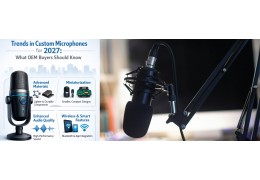
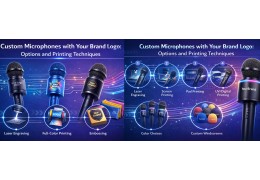
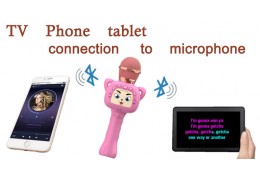

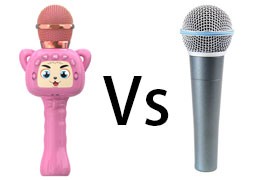
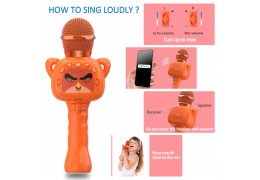
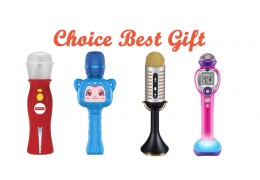
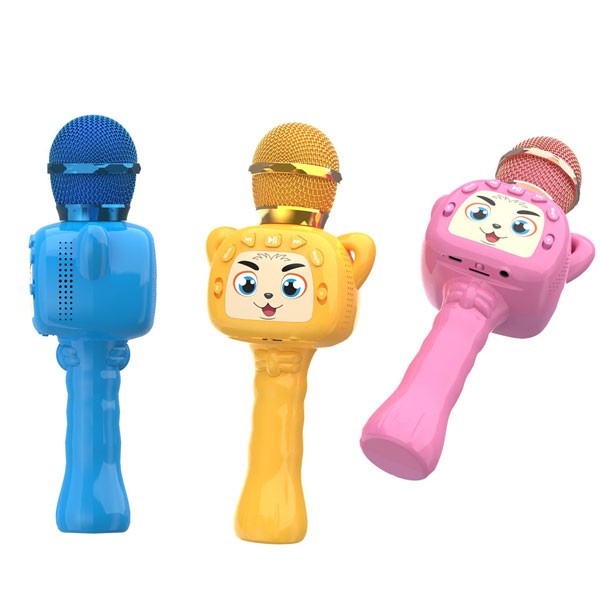

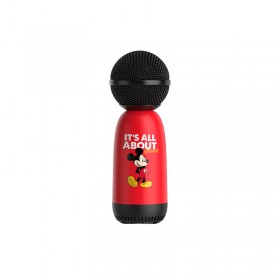
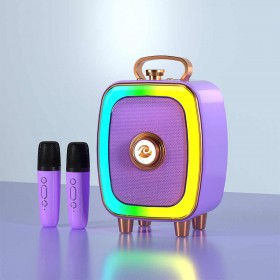
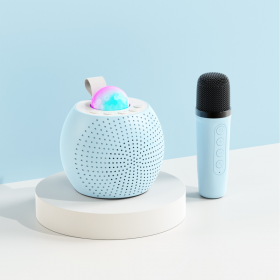
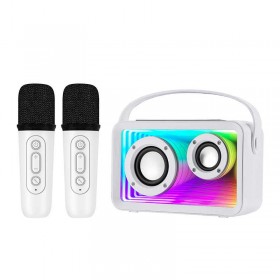
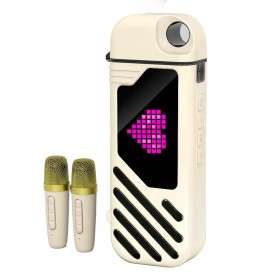
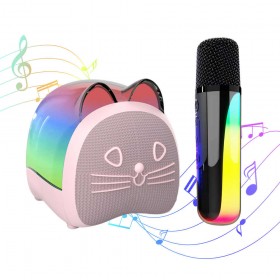
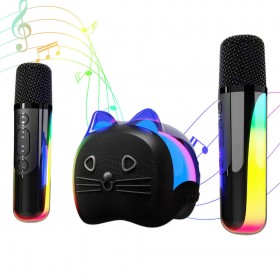
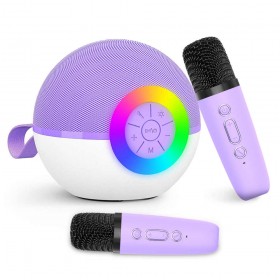
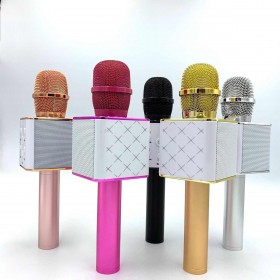
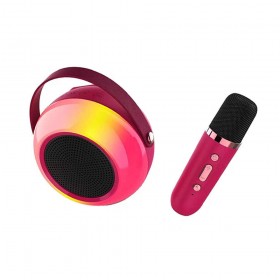
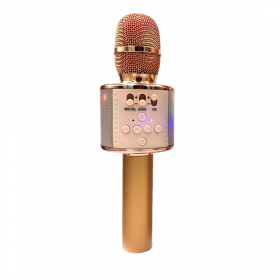
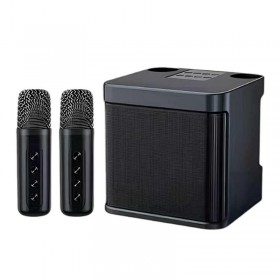

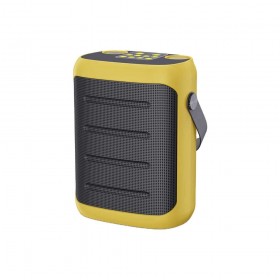
Top authors